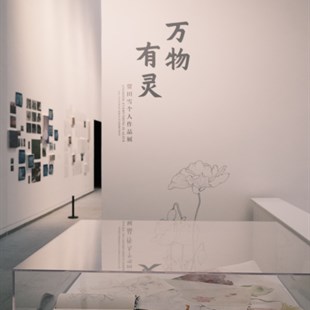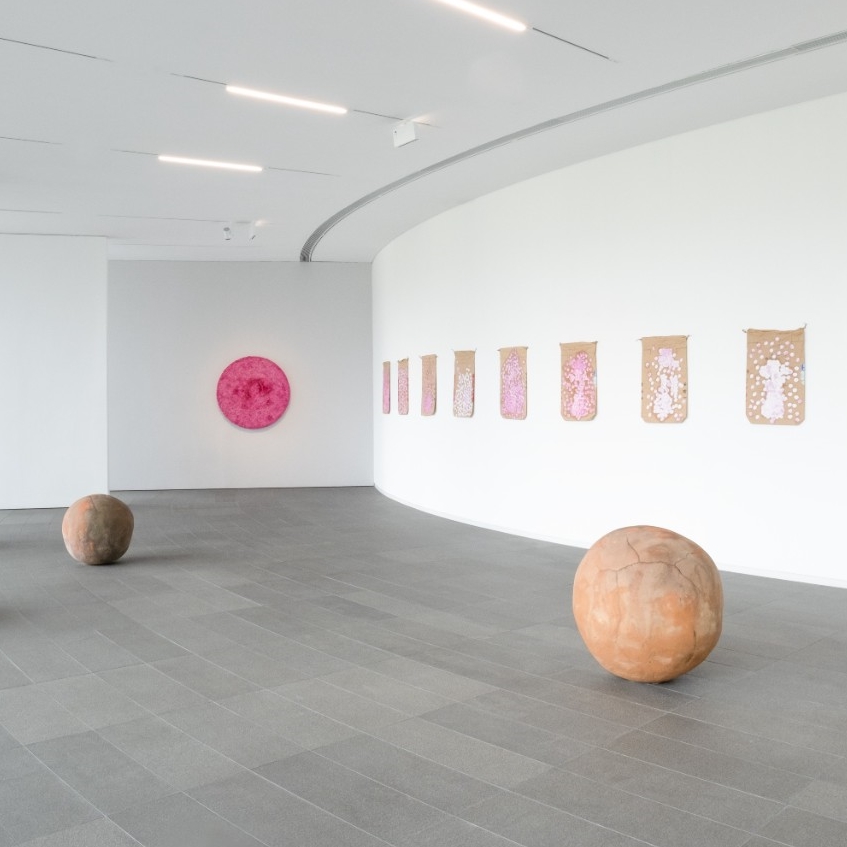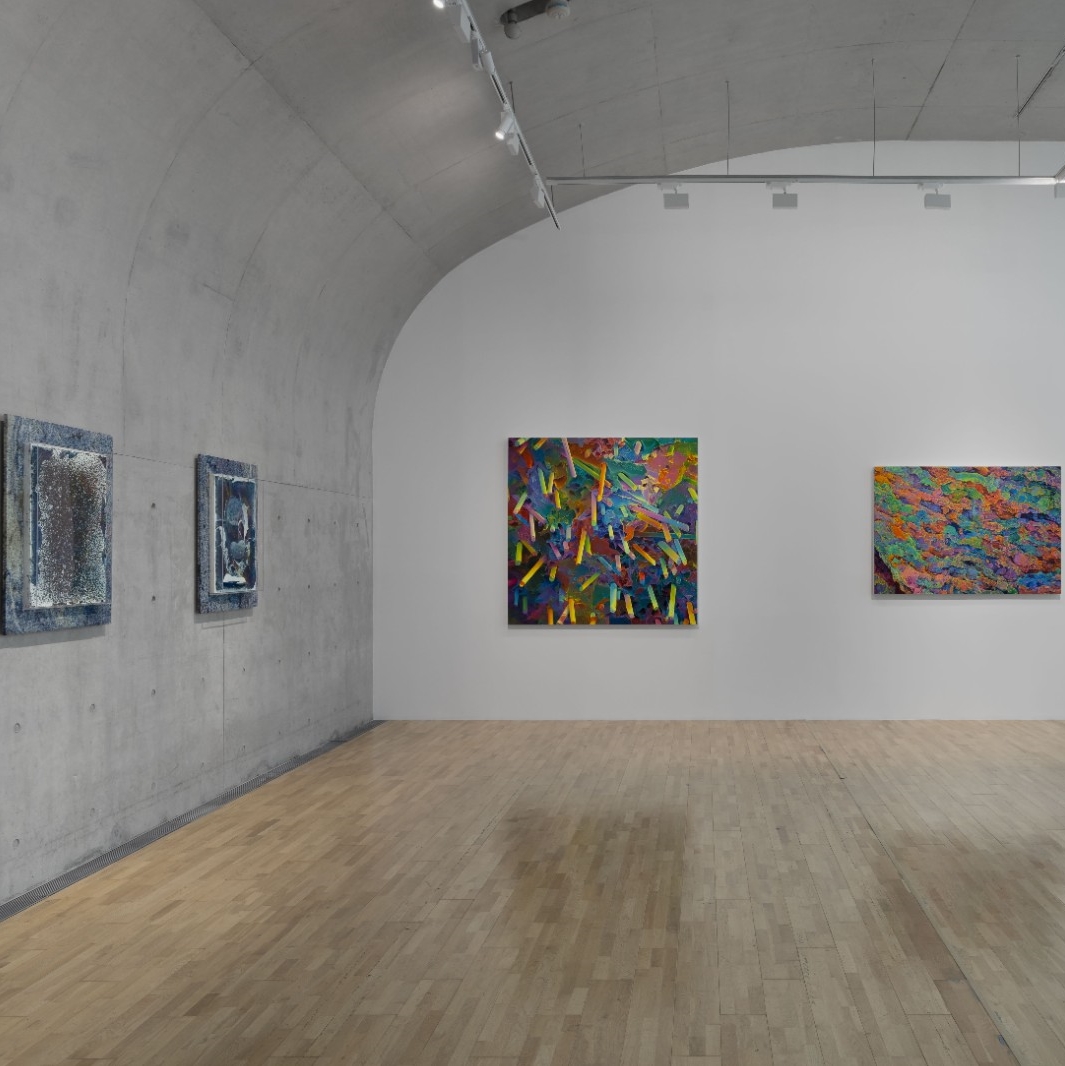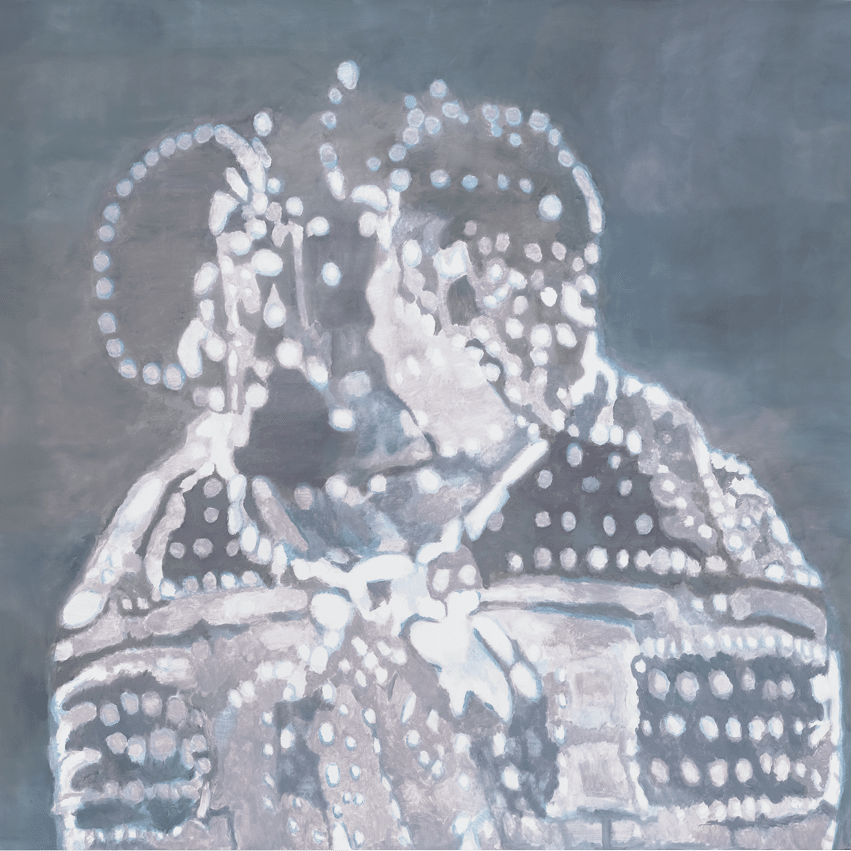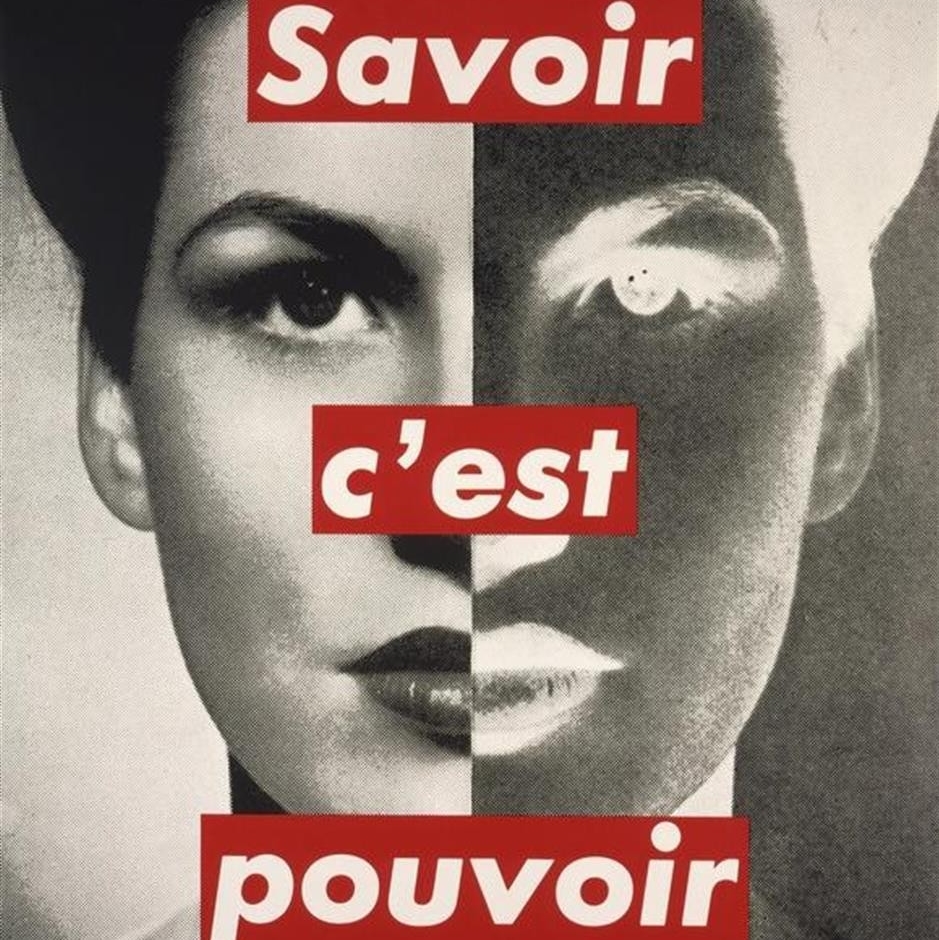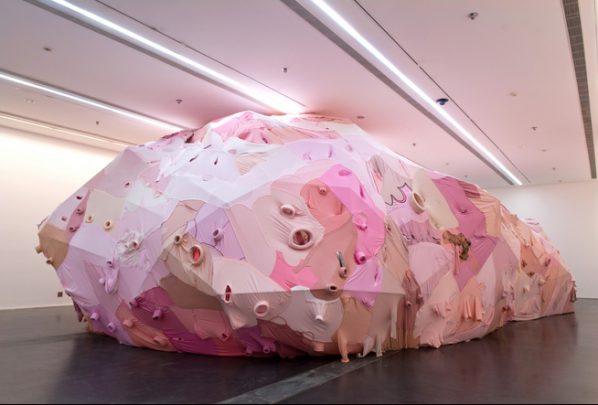
Introspective Cavity (exterior), 2008. Installation. Clothes, stainless steel, mirrors; Сourtesy of the artist and Pace Beijing
Yin Xiuzhen is the third artist invited to create a monumental, site-specific work for the Garage Atrium Commissions series. For her first solo presentation in Moscow, the Beijing-based artist will produce one of the largest architectural structures she has ever made. Entitled Slow Release, the installation is in the shape of a magnified medicine capsule—which visitors will be able to go inside—enveloped in used clothing most of which is donated by Muscovites.
The red and white capsule references a new generation of pills designed to reduce the speed of release of medicine in the body in order to increase its therapeutic effect. In Yin’s installation, however, the role of the decelerating element is played not by the capsule, but by the outside layer of clothing which envelopes the giant structure. By allowing visitors to enter the capsule, which is covered in the kind of clothes we wear every day—our second skin, as the artist refers to them—Yin creates a situation where people can slow down and experience the effect of being inside their own body. Reflecting on the overly fast speed with which she feels society is developing, Yin addresses the complex relationship between the contemporary demand for rapid therapeutic effects and the importance of making time for prolonged rituals of self-medication. The work functions as a powerful reminder of the antidote individual human experiences can provide to the overwhelming societal drive towards progress.
Since the beginning of her career in the early 1990s, Yin has established herself as one of the leading female artists from China. She often uses second-hand objects to make installations that explore the effects of globalization and rapid urban development. Yin is particularly concerned with how global economic progress affects the lives of individuals and our collective memory. Clothing is an important building material for Yin, being associated with memories of her mother working in a garment factory in China and with belonging to a generation of people for whom clothing was something very precious. She began incorporating it in her works in 1995, creating a series of installations that dealt with the interrelationship of memory, contemporary life, and individual experience.
The public program for Yin Xiuzhen's exhibition Slow Release features a kids’ workshop and a lecture that will enhance the audience’s understanding of the artist’s approach to her work. On September 30, kids from age seven to twelve will be able to create their ideal city together with Yin—inspired by her series of miniature Portable Cities (2001-). In this series, the artist reproduced about forty cities—including Moscow—made from used clothing, housed in suitcases. On November 24, the project's curator Snejana Krasteva will give a lecture on Yin’s work within the broader context of how contemporary art in China has been developing, with a particular focus on female artists that have emerged from there. A selection of books on Chinese contemporary art will be available at Garage Library throughout the exhibition. Committed to engaging children and adults with developmental disabilities in cultural activities, Garage will also organize free workshops inside the installation space. Yin’s work will be used as a sort of “sensory deprivation capsule”, a perfect place to rest for visitors with autism spectrum disorders.
About the artist
Yin Xiuzhen was born in 1963 in Beijing, China. She lives and works in Beijing. Recent solo exhibitions include: Yin Xiuzhen: Washing River, Tasmania Museum and Art Gallery, Hobart, Australia (2014); Nowhere to Land, Pace Beijing, Beijing, China (2013); Yin Xiuzhen, Groninger Museum, Groningen, Netherlands (2012); Project 92, Museum of Modern Art, New York, USA (2010). Recent group exhibitions include: Chinese Utopias Revisited: The Elephants, BOZAR, Brussels, Belgium (2015); What Models Can Do, Museum für Gegenwartkunst Siegen, Siegen, Germany (2014); the 5th Moscow Biennale of Contemporary Art, Moscow, Russia (2013). The artist has received a range of prestigious awards including the China Contemporary Art Award (CCAA) and the UNESCO/ASCHBERG award in 2000.
Organized by Snejana Krasteva, Garage Curator.Garage Atrium Commissions provide opportunities for artists to develop site-specific artworks for the Entrance Hall of the Museum. The first series of its kind in Russia, the commissions respond to the scale of the 9.5-meter (31ft) high, 10-meter (33ft) wide space, which can be viewed from all floors of the building. Presented twice a year, in spring and fall, the series has included new works by Erik Bulatov (June 2015), and an installation by Rashid Johnson (spring 2016).
GARAGE MUSEUM OF CONTEMPORARY ART
Garage Museum of Contemporary Art is a place for people, art, and ideas to create history. Through an extensive program of exhibitions, events, education, research, and publishing, the institution reflects on current developments in Russian and international culture, creating opportunities for public dialogue, as well as the production of new work and ideas in Moscow. At the center of all these activities is the Museum’s collection, which is the first archive in the country related to the development of Russian contemporary art from the 1950s through the present.
Founded in 2008 by Dasha Zhukova and Roman Abramovich, Garage is the first philanthropic organization in Russia to create a comprehensive public mandate for contemporary art and culture. Open seven days a week, it was initially housed in the renowned Bakhmetevsky Bus Garage in Moscow, designed by the Constructivist architect Konstantin Melnikov. In 2012 Garage relocated to a temporary pavilion in Gorky Park, specifically commissioned from award-winning architect Shigeru Ban. A year later, a purpose-built Education Center was opened next to the Pavilion. On June 12, 2015, Garage welcomed visitors to its first permanent home. Designed by Rem Koolhaas and his OMA studio, this groundbreaking preservation project transformed the famous Vremena Goda (Seasons of the Year) Soviet Modernist restaurant, built in 1968 in Gorky Park, into a contemporary museum.
Garage is a non-profit project of The IRIS Foundation.
About the exhibition
Dates: September 30, 2016–January 31, 2017
Venue: Garage Museum of Contemporary Art
Courtesy of the artist and Garage Museum of Contemporary Art, for further information please visit http://garagemca.org.


